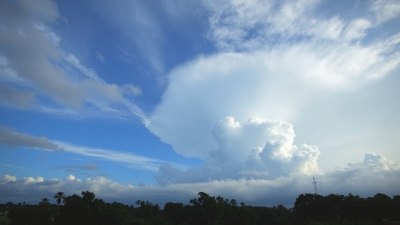Why We Check the Weather Even When We’re Not Going Anywhere
Explore the reasons behind our habit of checking the weather, even without travel plans. Discover insights into human behavior and psychology.

Weather checking is a common ritual for many people that transcends mere travel planning. Most of us find ourselves reaching for our smartphones or glancing out the window, even when we have no immediate plans to go out. So, why do we check the weather? The reasons can be both practical and psychological, influencing our moods, decisions, and daily activities in subtle ways.
The Psychological Comfort of Knowing
One primary reason people check the weather is to gain psychological comfort. Knowledge of the weather can help alleviate anxiety about unexpected changes. For instance, knowing it’s going to rain tomorrow allows us to prepare mentally and physically, reducing stress. This preemptive knowledge gives us a sense of control over our environment, which is a fundamental human desire. By staying informed about weather patterns, we ward off feelings of uncertainty that can lead to discomfort.
Weather and Daily Routines
Our daily routines are heavily influenced by the weather. Whether it’s deciding what to wear, planning outdoor activities, or even deciding what to eat, the weather can alter our choices significantly. Reviewing the forecast allows us to align our plans with the impending conditions, even if we aren’t planning to go anywhere specific. A sunny forecast might inspire us to indulge in a barbecue in the backyard, while an overcast sky can prompt us to cozy up with a good book indoors.
The Impact of Technology
The evolution of technology has made checking the weather significantly easier. In the past, we relied on television or radio broadcasts for weather updates. Today, smartphone applications and websites provide real-time data and long-term forecasts. The ease of access encourages frequent checking, fostering a habit. This instant access to information can lead us to check multiple times a day, even when we have no plans, reinforcing the behavior.
Social Interactions and Conversations
Weather serves as a universal topic of conversation. It is often a safe and neutral subject that can break the ice in social settings. Checking the weather can give us fodder for discussions, helping us connect with others. Even when we don’t need the information ourselves, sharing weather updates can be a way to engage in casual conversation, thus reinforcing the habit of checking the weather.
Seasonal Changes and Mood
Our emotional states are often closely tied to the weather. Research shows that weather can significantly influence mood and behavior. For instance, sunny days often bring feelings of joy and positivity, while gloomy weather can lead to feelings of sadness or lethargy. People may check the weather to gauge how it may affect their mood or how they might like to spend their day. Understanding the weather can help us plan for emotional fluctuations and seek out activities that uplift us.
Preparation for the Unexpected
Even when we feel we have no plans, life can be unpredictable. Checking the weather allows for better preparation for surprises, whether that be a sudden downpour or an unexpected heatwave. While we might not have planned a trip outdoors, knowing the weather can help avoid unpleasant surprises. The knowledge gleaned from weather checks can help us stock essentials, adjust plans accordingly, and be ready for changes that may come our way.
The Role of Climatic Conditions in Local Trends
Local climatic conditions create a unique environment in every region. Some areas are known for their inclement weather, while others boast mild and pleasant climates. Understanding local trends can give insight into seasonal behaviors, from festive gatherings to seasonal sports. People often track weather patterns out of curiosity about local culture, events, or traditions that vary by season.
Healing and Nature Connection
There’s a growing recognition of the healing properties of nature. Nature therapy, or ecotherapy, addresses the psychological benefits of being in nature, and checking the weather can inspire people to get outside. Understanding when conditions are favorable encourages us to reconnect with our natural environment, benefitting our mental health. This connection often becomes a strong motivator to check the weather, even if we’re not planning a specific outing.
The Influence of Health and Well-Being
Our physical health can also be affected by the weather. Certain conditions, such as allergies or seasonal affective disorder (SAD), can be influenced by weather changes. Individuals may check the weather to prepare for allergens such as pollen or to gauge their vulnerability to seasonal depression. In this case, checking the weather becomes an act of self-care, focusing on well-being and health management.
Community and Shared Experiences
Finally, weather has the power to create shared experiences. From snow days to summer heatwaves, weather events impact communities collectively. The sense of belonging and shared experience can prompt individuals to stay informed about the weather, whether for community activities or social gatherings. Joining in discussions about weather fosters a camaraderie that ties us together, reinforcing the desire to stay updated.
The Bottom Line
In conclusion, checking the weather is a multifaceted behavior that extends beyond mere necessity. It is influenced by psychological needs, daily routines, social interactions, and our connection to the environment. While the immediate need for checking the weather may not always be apparent, the act itself serves deeper purposes that enhance our control, wellbeing, and connection to the world around us. Understanding these underlying motivations can provide insight into our habits and enhance our awareness of how weather influences our everyday lives.











